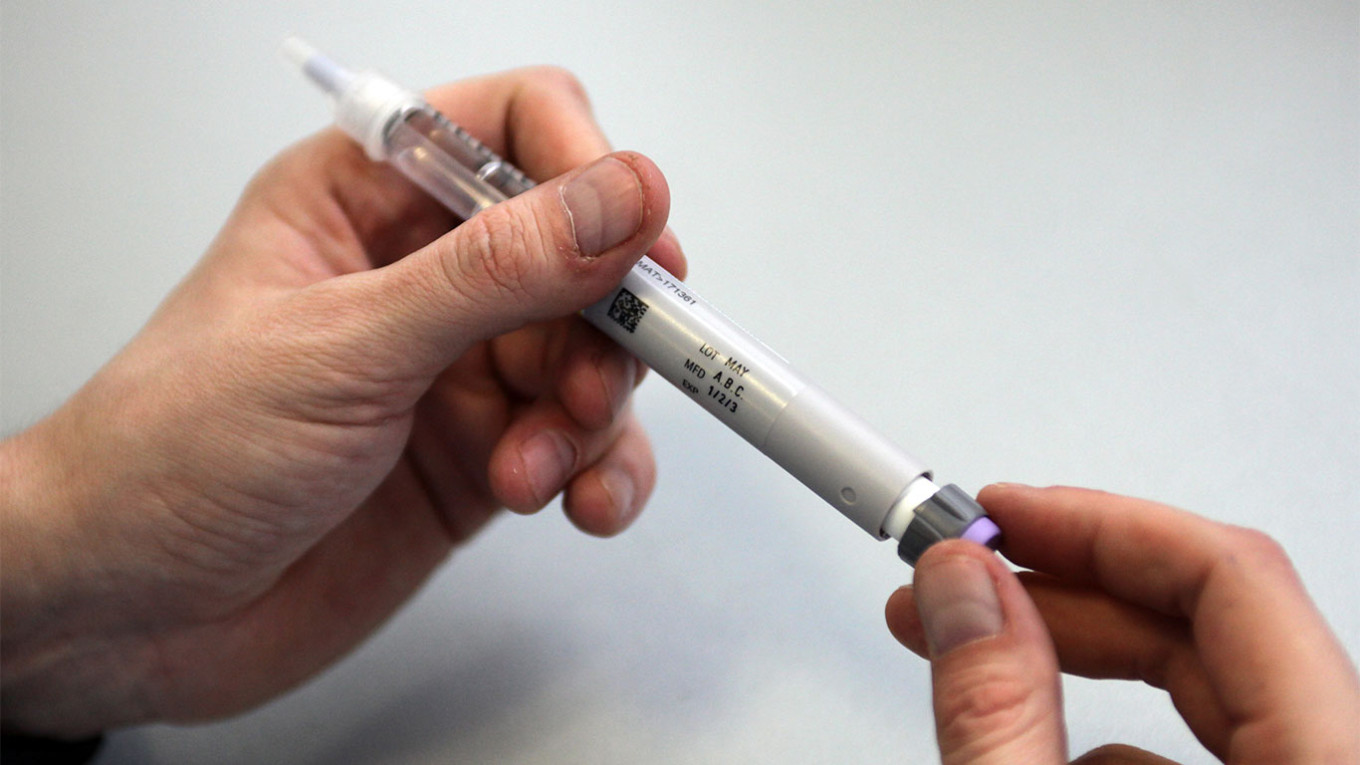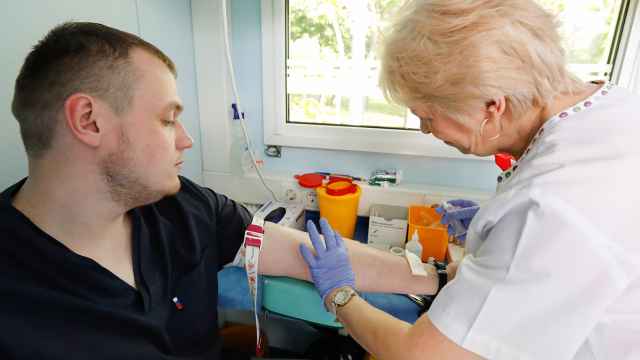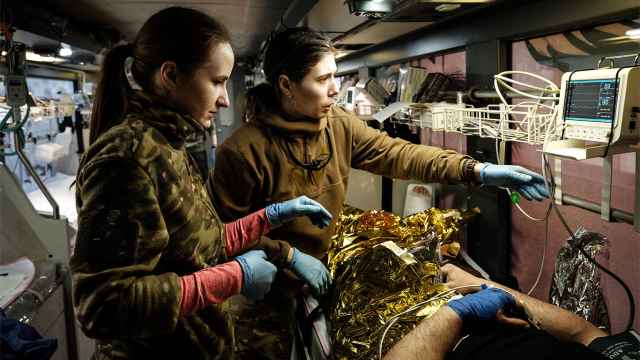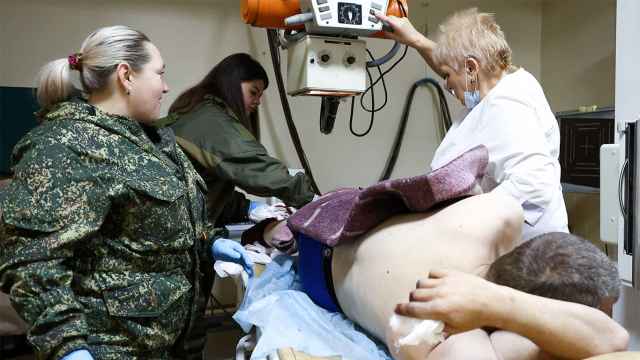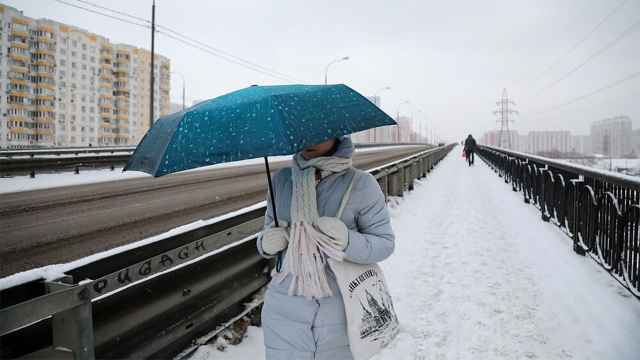For several weeks following Russia’s invasion of Ukraine, Alina used a needle every other hour to prick her two-year-old diabetic son’s finger and measure his glucose levels.
“Pricking the fingers of a two-year-old baby so many times a day is just torture,” she told The Moscow Times. “[But] we had no choice.”
Prior to the war, Alina checked her child’s glucose levels with a Western-manufactured technology that allows a smartphone app to monitor a sensor on the child’s arm. But disruption to supplies — caused in part by Western sanctions on Russia over the Ukraine war — meant that the equipment suddenly became much harder to obtain.
Some 10.5 million Russians with diabetes have been affected by shortages of key medical equipment and rising drug prices since Moscow’s attack on Ukraine.
Eventually, Alina, who lives in the Volga River city of Samara in southern Russia, found a way to obtain a Western-made glucometer — a FreeStyle Libre sensor — which allows her to check her son’s glucose level without drawing blood.
“We ordered from China,” she told The Moscow Times.
“There is no way to buy it in Russia, and even if you can, it's costly. One item costs over 15,000 rubles ($253), and scammers are everywhere.”
In addition to supply problems, Russian diabetics have also faced price increases for both drugs, particularly insulin, and medical equipment.
The Federal Antimonopoly Service agreed at the end of May to increase the maximum price for insulin by 28%, media outlet Kommersant reported.
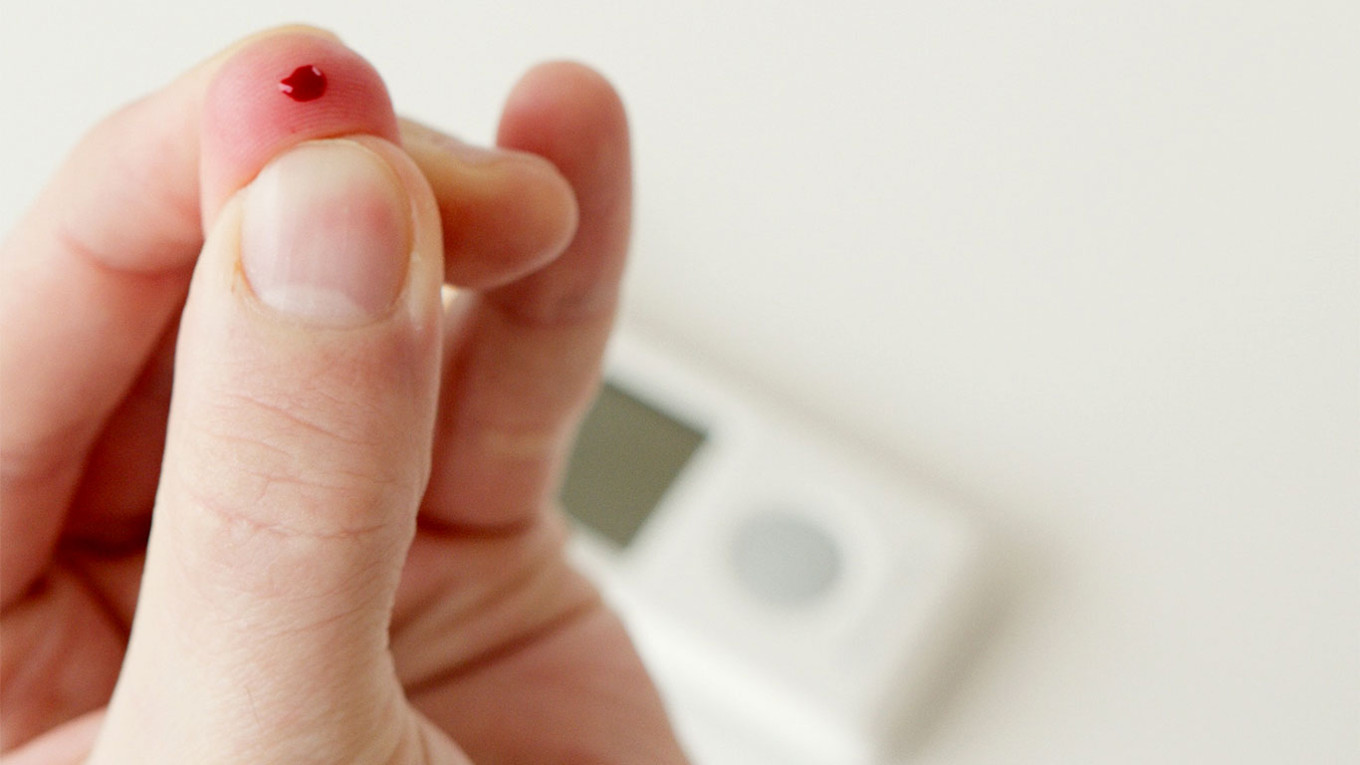
For instance, the price of a month's supply of drugs used by a pump that can deliver them continuously into subcutaneous fat doubled to $132 in April, and are difficult to obtain. The state has also stopped purchasing such drugs, according to The Insider.
“To have diabetes and to control it well is quite expensive,” said Ksenia Solovyova, an endocrinologist at a private clinic in St. Petersburg.
“Even if a person is receiving medication at a clinic they are not fully covered,” she told The Moscow Times.
In Russia, people with pre-existing conditions, including diabetes, are entitled to receive the required equipment and drugs for free — or with a 50% discount in clinics. However, the legislation, activists and patients say, is poorly written and implemented, especially amid supply chain disruptions since Russia invaded Ukraine.
Combined with occasional negligent treatment by doctors and nurses at state clinics, some are driven to desperate measures.
Yelena, also from Samara, and her seven-year-old diabetic daughter had been waiting for a new glucometer since February when a previous one broke.
Not only did the doctor not provide the necessary insulin and blood glucose test strips but she was also rude, Yelena, 39, told The Moscow Times, requesting anonymity to speak freely.
Eventually, her husband texted their endocrinologist, threatening to file a complaint with the police and seek criminal prosecution.
Three days after the threats, Yelena’s daughter received the drugs and equipment.
Numerous Russian media reports in recent months indicate that Russian clinics and drug stores are failing to provide diabetics with all they need.
“I was added to a Samara region chat [on social media] for diabetics. There are over 1,000 people there, and they constantly complain about outpatient clinics and the issuance of insulin,” recalled Alina, the other parent of a diabetic child in Samara.
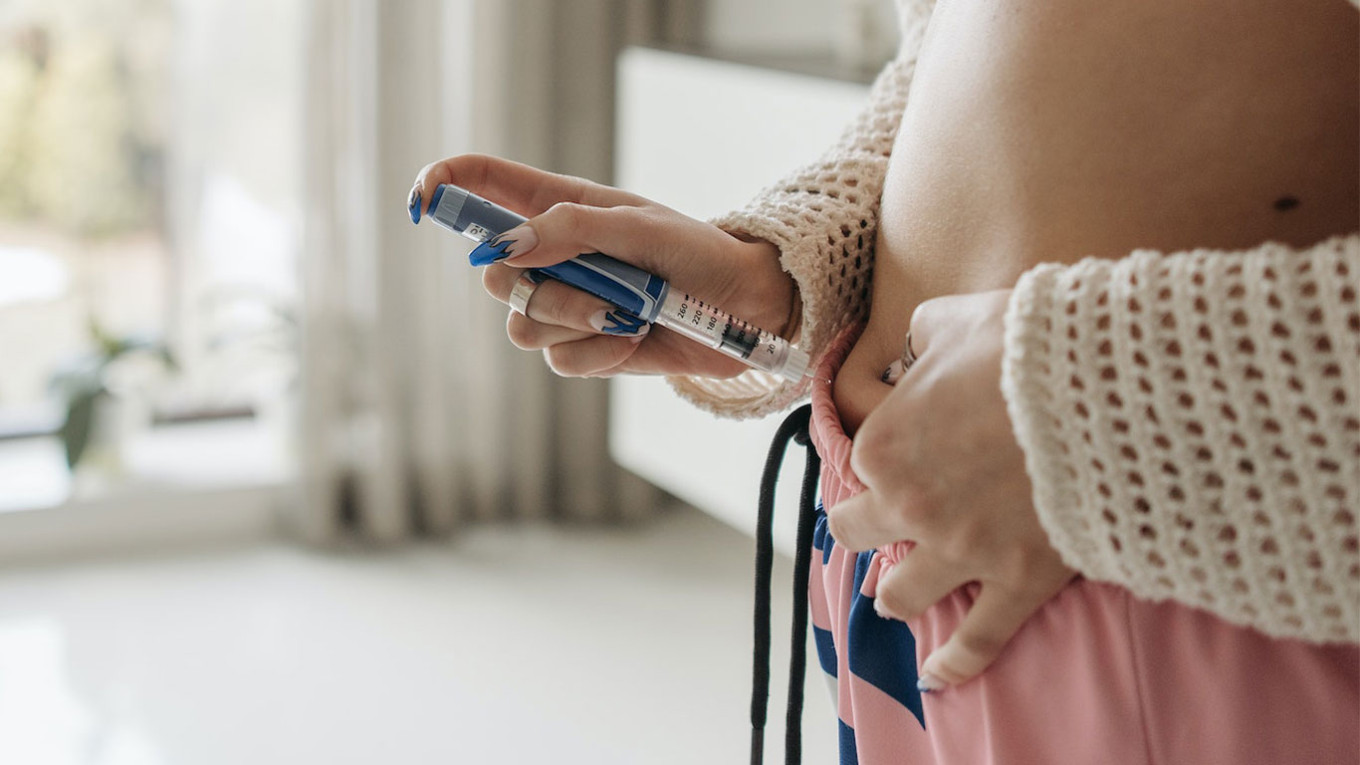
Generally, people blame hospitals and their supervising physicians.
“No one gives a shit about anything,” said Yelena.
The growing problems with drug supplies, shortages and rising prices have led to many parents taking a more hardline approach.
“The trend now is that parents more often try to seek benefits through appeals to the prosecutor's office and the courts,” Solovyova told The Moscow Times.
“And that is understandable as they often receive vague notes from local authorities that do not explain why a child is entitled to fewer drugs or equipment.”
In the city of Ulyanovsk, not far from Samara, a criminal case against the local Health Ministry was opened in August for failing to provide glucose-monitoring devices.
The same month, the head of the powerful Investigative Committee, Alexander Bastrykin, acknowledged the “systemic nature” of supply issues affecting diabetics and ordered probes into clinics and doctors in multiple Russian regions.
However, such targeted investigations are unlikely to solve what appears to be a deeply entrenched issue.
Solovyova said she believes criminal cases won’t improve drug supplies as judges have little understanding of possible solutions — and no power to implement them.
“There is no document that would clearly regulate who gets how much of what. This is the main stumbling block between patients, doctors, prosecutors and all regulatory bodies,” said Soloyova, who switched to private practice in 2020.
“The prosecutor's office and judges cannot understand this situation because there is no clear law that could explain it.”
While European and U.S. sanctions on Russia over the attack on Ukraine did not target medical suppliers, device manufacturers and drugmakers immediately warned that economic and financial restrictions, as well as the decision of some international companies to cease operations in Russia, will have a knock-on effect on deliveries.
U.S. medical devices company Abbott, which produces the FreeStyle Libre sensor that was so desperately needed by Alina, hasn't delivered any products to Russia since the start of the Ukraine war in February.
The company has set up a waiting list for those who need their sensors, and promised to provide further information about shipping dates as soon as possible. “We are currently experiencing limited availability of FreeStyle Libre sensors in several countries, including Russia,” the Russian version of Abbott's website states.
For mothers like Alina and Yelena who have diabetic children, one of their greatest fears is not being able to obtain equipment or drugs.
“It's really scary when you either run out of insulin or test strips,” said Yelena.
“I've never been in such a situation. I hope I never will.”
A Message from The Moscow Times:
Dear readers,
We are facing unprecedented challenges. Russia's Prosecutor General's Office has designated The Moscow Times as an "undesirable" organization, criminalizing our work and putting our staff at risk of prosecution. This follows our earlier unjust labeling as a "foreign agent."
These actions are direct attempts to silence independent journalism in Russia. The authorities claim our work "discredits the decisions of the Russian leadership." We see things differently: we strive to provide accurate, unbiased reporting on Russia.
We, the journalists of The Moscow Times, refuse to be silenced. But to continue our work, we need your help.
Your support, no matter how small, makes a world of difference. If you can, please support us monthly starting from just $2. It's quick to set up, and every contribution makes a significant impact.
By supporting The Moscow Times, you're defending open, independent journalism in the face of repression. Thank you for standing with us.
Remind me later.


